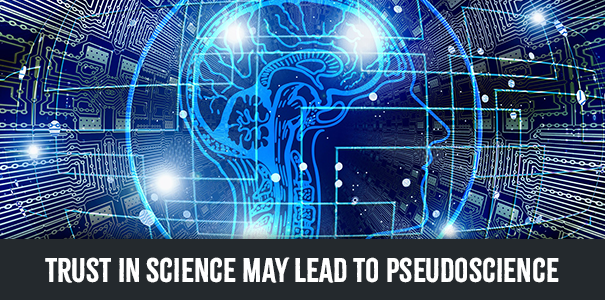Trust in Science May Lead to Pseudoscience

Published by Steven Novella under Skepticism, https://theness.com/neurologicablog 3 Sep 2021
The ultimate goal of scientific skepticism is to skillfully use a process that has the maximal probability of accepting claims that are actually true and rejecting those that are false, while suspending judgment when an answer is not available. This is an open-ended process and is never complete, although some conclusions are so solid that questioning them further requires an extremely high bar of evidence. There are many components to scientific skepticism, broadly contained within scientific literacy, critical thinking skills, and media savvy. Traditional science communication focuses on scientific literacy (the so-called knowledge deficit model), but in the last few decades there has been copious research showing that this approach is not only not sufficient when dealing with many false beliefs, it may even be counterproductive.
A new study offer more evidence to support this view, highlighting the need to combine scientific literacy with critical thinking in order to combat misinformation and false claims.
They found that subjects who scored higher in terms of trust in science were more likely to believe false claims when scientists were cited – so trust in science made them more vulnerable to pseudoscience. For those with low trust in science, the presence or absence of scientific content had no effect on their belief in the false claims.
What all this means (combined with other research, which the article reviews), is that trust in science itself, while a good thing overall, makes people more susceptible to pseudoscientific manipulation. All you have to do is make a claim seem sciency by quoting an alleged expert or citing a study (regardless of the quality, relevance, or representativeness of that study), and those with trust in science will see that as a cue to trust the claims being made.
Read the full article here:
https://theness.com/neurologicablog/index.php/trust-in-science-may-lead-to-pseudoscience/

